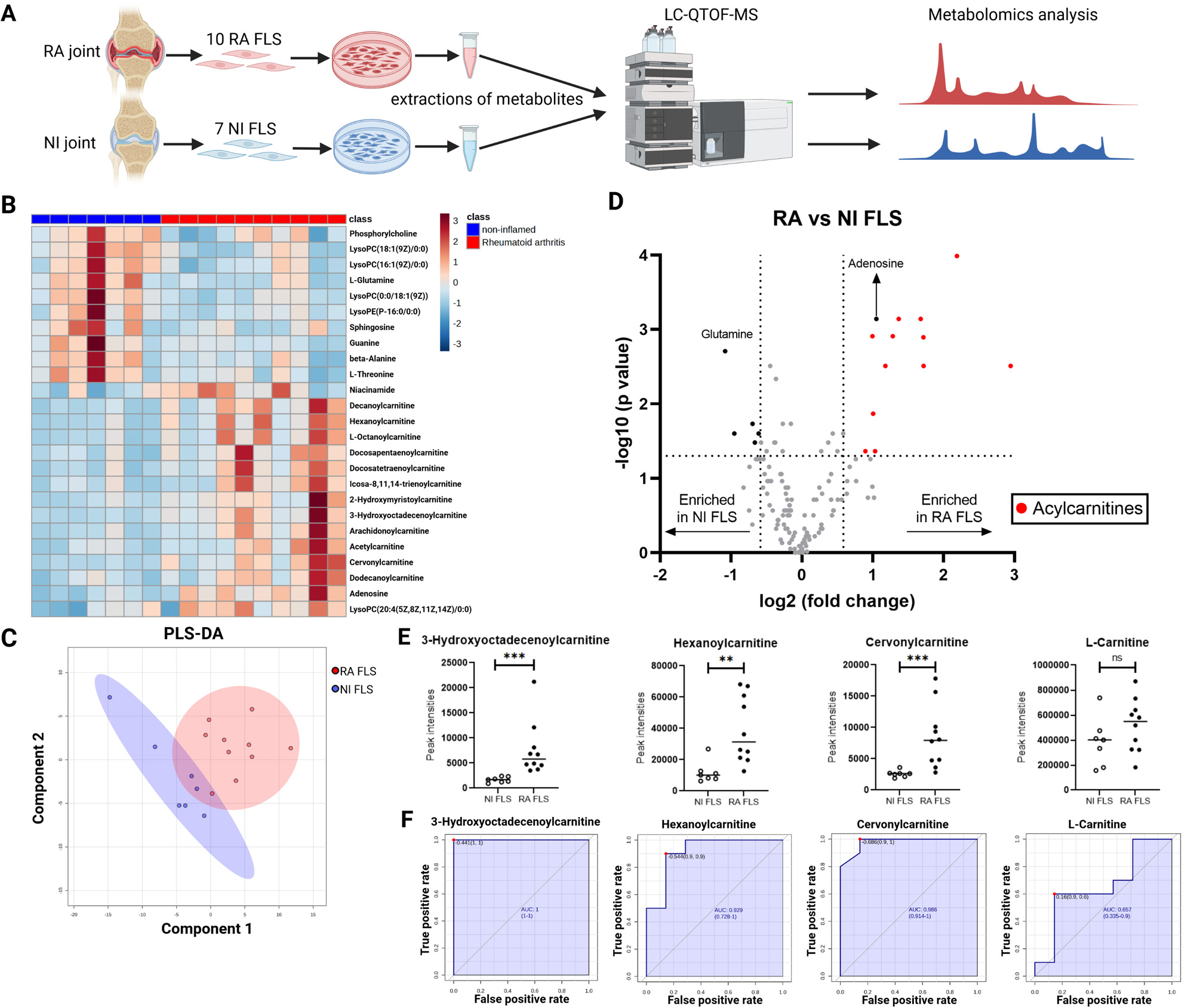Session Information
Session Type: Poster Session C
Session Time: 9:00AM-11:00AM
Background/Purpose: Several metabolic pathways have been implicated in rheumatoid arthritis fibroblast-like synoviocytes (RA FLS) aggressive phenotype1,2. Here, we aimed to analyse the full spectrum of metabolic alterations associated with RA by performing untargeted metabolomics using mass spectrometry in RA FLS vs. non-inflamed (NI) FLS.
Methods: Ten RA FLS were obtained from synovial tissue specimens from patients with RA undergoing joint replacement surgery. Seven NI FLS were obtained from patients with no previous history of arthritis, undergoing diagnostic arthroscopy due to previous injury that occurred over 2 months prior to the operation. We collected primary RA and NI FLS culture extracts and untargeted annotated metabolomics were performed using liquid chromatography coupled to quadrupole time-of-flight mass spectrometry (Figure 1A).
Results: Peak intensities of 138 annotated metabolites were acquired. Metabolomics analysis revealed a distinct metabolic fingerprint between RA and NI FLS as illustrated by hierarchical clustering shown as heatmap, and partial least squares – discriminant analysis (Figure 1B, C). A volcano plot combining fold change analysis and Mann-Whitney test revealed 18 metabolites having different levels in RA and NI FLS; 13 were enriched in RA FLS, while five were enriched in NI FLS (Figure 1D). Of the 13 metabolites enriched in RA FLS, 12 were acylcarnitines (Figure 1E, F).
Conclusion: RA FLS show an accumulation of acylcarnitines compared to NI FLS, which suggests an involvement of lipid metabolism in RA pathophysiology. Further studies are needed to understand this phenomenon and to determine if acylcarnitine accumulation in FLS contributes to FLS dysfunction in RA.
To cite this abstract in AMA style:
Vasileiadis G, Hultgård Ekwall A, Sureshkumar R, Guma M, Rudin A, Zhang Y, Maglio C. Acylcarnitine Enrichment Is a Characteristic of Rheumatoid Arthritis Fibroblast-Like Synoviocyte Metabolic Fingerprint [abstract]. Arthritis Rheumatol. 2023; 75 (suppl 9). https://acrabstracts.org/abstract/acylcarnitine-enrichment-is-a-characteristic-of-rheumatoid-arthritis-fibroblast-like-synoviocyte-metabolic-fingerprint/. Accessed .« Back to ACR Convergence 2023
ACR Meeting Abstracts - https://acrabstracts.org/abstract/acylcarnitine-enrichment-is-a-characteristic-of-rheumatoid-arthritis-fibroblast-like-synoviocyte-metabolic-fingerprint/

